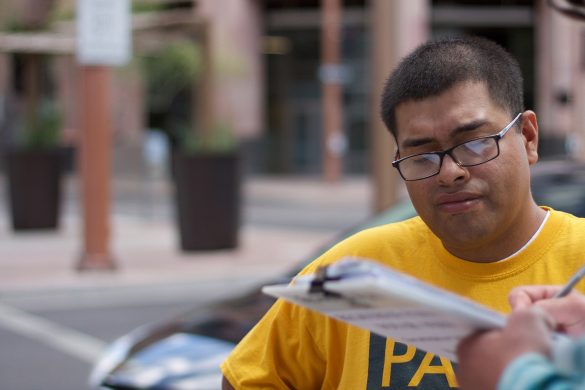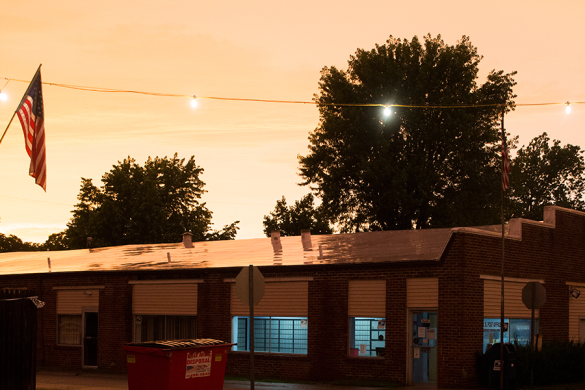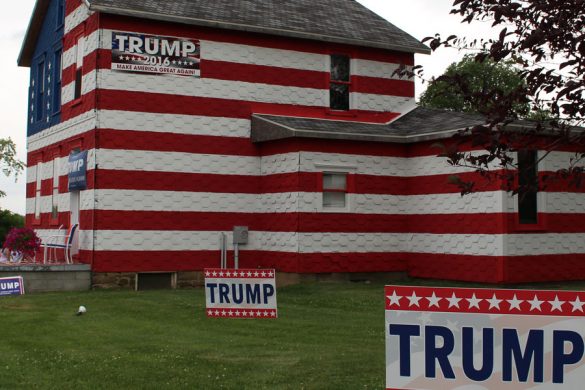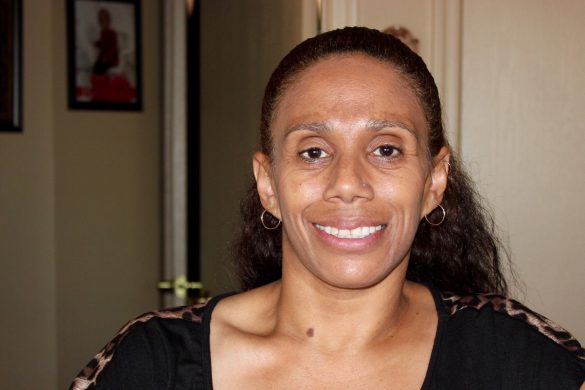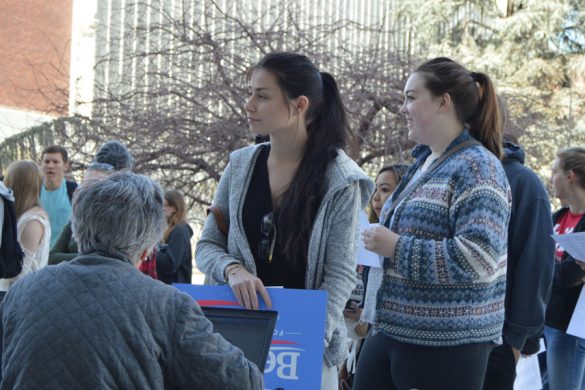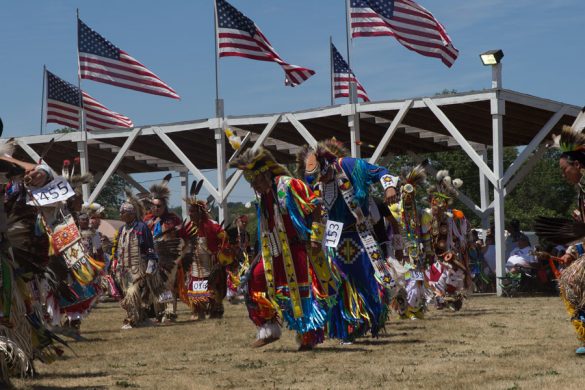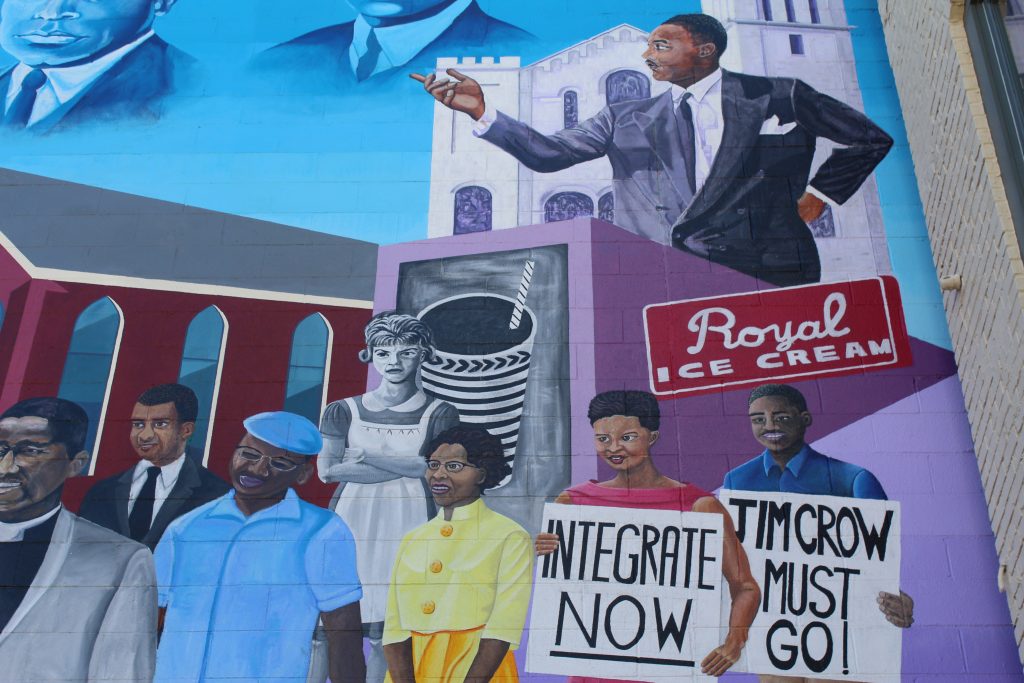
This mural in Durham, North Carolina, illustrates the civil rights movement as black residents fought for integration and voting rights. (Photo by Phillip Jackson/News21)
PHOENIX – The legal battle over whether North Carolina’s voter ID law is discriminatory is now in the hands of a federal appeals court in Richmond, Virginia.
In a U.S. 4th Circuit Court of Appeals hearings last week, Judge Henry F. Floyd raised doubt over the stated intent of the Republican-backed voter ID law, according to the Associated Press.
The authors of House Bill 589, which passed in 2013, have said the law was meant to protect against voter fraud, but the judge questioned the timing of the law and its disproportionate impact against minorities.
The law requires voters to show a state-issued ID at the polls, and it reduced the early voting period and eliminated same-day registration.
In April, U.S. District Judge Thomas Schroeder ruled the higher African-American voter registration and turnout rates in 2014 indicated the law has no discriminatory effect.
The plaintiffs, which include the U.S. Justice Department, the North Carolina NAACP and the League of Women Voters, appealed. They argue the new law violates the Voting Rights Act.
A birth certificate is one of the legal documents people can use to get a North Carolina ID. But Irving Joyner, a lawyer representing the North Carolina NAACP, said this presents a challenge for older black residents wanting to register to vote.
“In a rural state like North Carolina, particularly a state that was steeped in Jim Crow laws, many of the African-Americans affected were born in the ‘40s, ‘50s and ‘60s and don’t have a birth certificate,” Joyner said. “You can’t go down to the Department of Vital Statistics and have one printed out, so a large amount of voters are affected by that.”
According to an amicus brief filed in May by the voter advocacy group Democracy North Carolina, African-Americans cast 34 percent of photo ID-related provisional ballots that were not counted in the state’s March primary.
African-Americans made up 23 percent of registered voters in the primary. The data excludes any voter whose race was undesignated.
A separate report from Democracy North Carolina said more than 29,000 North Carolinians were able to vote because of provisions that will be eliminated or reduced in the presidential election. The provisions include same-day registration, early voting and voting out-of-precinct on Election Day.
That’s the number of voters that could swing North Carolina one way or the other come November, said Gunther Peck, an associate professor of public policy and history at Duke University.
“To put that into context, (29,000 votes) doesn’t sound like a lot, except that this state was the closest state in the country the last two election cycles, and the margin of difference in 2008 was 14,000,” Peck said.
College students will be hit hardest by the new voter ID law, North Carolina State University sophomore Logan Graham said. Graham helped assist students trying to vote with other members of the Student Government Association, but he said the distant polling location and the restrictions from the new laws have turned students away from the process.
“A lot of students didn’t have (state-issued) ID or weren’t aware of the new laws in place,” he said. “When you look at the big picture of all of this, voting rights is really restricted here. There are a lot of students who want to vote but can’t because they don’t have the right ID.”
Graham himself tried his luck with a provisional ballot in the primaries, as his only ID is from his home state of Colorado.
Supporters of voter ID, such as Mitch Kokai, a senior political analyst for the John Locke Foundation, said the new laws aren’t meant to disenfranchise voters, but to prevent fraud at the ballot box. A News21 investigation in 2012 found voter fraud was rare, but Kokai said it exists.
“You do have voter fraud and it crops up anecdotally, one of the main problems of finding the evidence of fraud is if it’s done well, who’s going to catch you?” Kokai said. “To say there is no voter fraud is to say no one drives 67 miles per hour on the highway when the speed limit is 65. Yet everyone knows it happens.”
The appeals panel in the case has not said when it would issue a ruling.
Follow Max Garland on Twitter @MaxGarlandTypes.
